Navigating Middle East trade: Exporting goods to Iraq.
To export a product, it is necessary to obtain the necessary licenses and standards by the laws of each country. In some country, for example, the Trade Development Organization has banned the export of goods to Iraq without affixing a Latin or Arabic label. The Iraqi Standardization Institute has also enacted the same law for sending Iranian goods to this country, like Iran, so that all goods with two Latin and Arabic labels can be exported to this country. It should be noted that if the exported goods meet the above conditions and are not accepted by the Iraqi customs, the relevant authorities will prevent them from entering the country, which could cause irreparable damage to exporters and producers.
Iran's border with Iraq has several formal and informal gates through which most exports take place. However, part of the exports to this country also come from informal sources as well as informal markets and passages. Some of the country's customs are for the Kurdistan region and others are better for export to central or southern Iraq. Among the important customs in trade with Iraq are the following:
- Bashmaq Customs in Marivan
- Parviz Khan Customs in Qasr Shirin
- Mehran Customs in Ilam
- Arvandkenar Customs
- Tamerchin customs in Piranshahr
- Commercial Customs
- Khosravi Customs in Qasr Shirin
- Shalamcheh Customs
Arabic and Kurdish are the official languages of Iraq, with Kurdish spoken in the north and Arabic in the central and southern regions. Trade with this country requires mastery of one of these two official languages. Eastern neighbor has different subcultures, religions, and denominations. Therefore, raising public information and familiarity with its political, social, and cultural conditions is necessary for Iranian businessmen.
Although trade with Iraq has always had a significant profit margin for foreign traders, its special circumstances, including instability, ethnic and religious diversity, and special geographical conditions, require it to take steps with a little caution.
In the last fifty years Iraq has been one of the most adversely affected countries in the Middle East from political and economic difficulties. All problems occurred in this period, including several wars causing many confusions based on religion, ethnicity and tribes which become obstacles for sustainable development of the country.
Although Iraq tries to build itself from scratch nowadays and wants to integrate in the world by the help of rich resources, political problems and terror are still crucial problems of the country. Iraq is the second largest export market of Turkey and Turkish construction companies have a proactive role in the reconstruction of Iraq. Moreover both countries have mutually beneficial cooperation on energy for delivering Iraq's rich oil and natural gas resources to world markets.
By the end of the Iran-Iraq war in 1988, Iraqi army attacked Kurdish society in Northern Iraq that supported Iran during the war. The cooperation between Saddam Hussein and PKK (Kurdistan Workers' Party) against other Kurdish parties such as Kurdistan Democratic Party and Patriotic Union of Kurdistan, the protection of Kurdish refugees by Turkey, refusal of Turkey the hot pursuit Iraqi Kurdish militants agreement with Baghdad and the “water problem” of Euphrates and Tigris rivers between two countries were major political problems in 1988. Meanwhile, after the Iran-Iraq war, the general economic situation of Iraq was not good.
The foreign debt was over $80 billion by 1988, foreign reserves were drained, development projects were abandoned, more than 20 percent of the labor force of Iraq was working for the army, oil revenue was at minimum level and all valuable things in the country such as large factories in construction materials and mineral extraction, food processing and light manufacturing and agricultural lands were sold in a frenzy of privatization and the revenue was spent for the needs of the army (Parker and Moore, 2007). Thus; based on all these political and economic problems, 1988 was the break-down year of Turkey and Iraq trade relations.
-

Iraq"s trade landscape is shaped by its membership in the WTO and participation in regional agreements like GAFTA. The country maintains strong bilateral trade relations with neighbors such as Iran, Turkey, and Jordan, facilitating the exchange of goods and investment. China stands out as a major trading partner, supplying machinery and consumer goods while being the largest importer of Iraqi oil. India also plays a significant role, providing pharmaceuticals and textiles alongside substantial oil imports. The United States exports machinery and vehicles to Iraq, while South Korea invests in infrastructure projects. Despite extensive trade ties with Iran, data on this relationship is limited due to informal trading practices and sanctions. Iraq"s primary export remains oil, with China and India being key buyers. In 2018, Iraq"s exports were predominantly directed towards China (26.
25%) and India (36. 24%). On the import side, Iraq sources goods from various countries including China (28. 64%) and Turkey (24. 27%). The country also exports agricultural products like dates and grains, alongside chemicals and manufactured goods. Understanding these dynamics is crucial for businesses looking to engage in Iraq"s evolving trade environment.
-
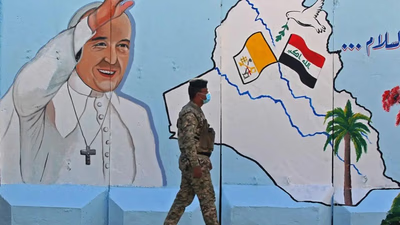
Understanding the export landscape in Iraq requires thorough market research to identify demand, competitors, and trends. Exporters must navigate cultural, economic, and regulatory factors that influence their strategies. Key documentation includes commercial invoices, packing lists, and customs declarations, all of which must comply with Iraqi regulations. The strong trade relationship between Iran and Iraq highlights the potential for profit in this market. Customs procedures vary by product category, necessitating consultation with customs brokers for compliance. Additionally, exporters should be aware of specific product standards and certifications required in Iraq. A reliable logistics provider is essential for smooth transportation and customs clearance. Payment methods such as letters of credit or bank transfers are common, and exploring export financing options can mitigate risks.
Understanding Iraqi cultural norms is crucial for effective communication and relationship-building with local partners. The political structure is complex, with significant power held by provincial councils alongside the central government in Baghdad. The economy is heavily reliant on oil exports, supported by international financial assistance. Staying informed about legal regulations and security conditions is vital for successful operations in Iraq. Establishing local partnerships can enhance market insights and facilitate business connections.
-
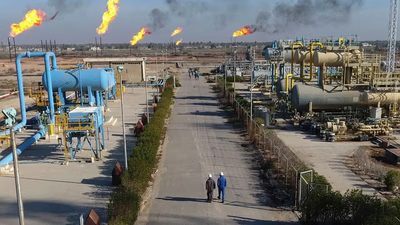
Iraq"s economy is heavily reliant on oil, contributing approximately 95% of its total revenues. Despite being one of the largest oil producers globally, the country faces significant economic challenges due to political instability, corruption, and inadequate infrastructure. The reliance on oil exposes Iraq to global price fluctuations, hindering economic diversification and growth. Efforts to develop sectors like agriculture and tourism have seen limited success, with unemployment rates remaining high, particularly among youth. The government struggles to provide essential services and create jobs, exacerbating social inequalities. International assistance from organizations like the IMF and World Bank aims to address these issues through governance reforms and improved public financial management. However, bureaucratic hurdles and security concerns continue to impede foreign investment in critical sectors such as energy and construction. Iraq"s fiscal situation is strained by its dependence on oil revenues, leading to budget deficits and a high public debt-to-GDP ratio. Reconstruction efforts post-ISIS have been initiated but face challenges that slow progress towards sustainable economic development.
-
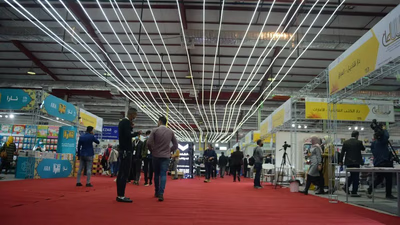
Customs clearance in Iraq begins with submitting a customs declaration form via the Automated System for Customs Data (ASYCUDA). Importers must provide detailed information about the goods, including description, quantity, value, and country of origin. Certain items may require import licenses or permits from Iraqi authorities, which must be obtained prior to importation. Essential documents for clearance include a commercial invoice, packing list, bill of lading or airway bill, certificate of origin, and any necessary licenses. Fees associated with customs processing can vary based on the goods" nature and value. Once all duties and fees are settled, goods are released for transport within Iraq. However, navigating customs can be complex due to varying laws across provinces and potential security issues. Exporters must also be aware of cultural contexts and trade regulations that differ between regions.
Documentation requirements may change over time; thus, staying informed is crucial. Consulting local experts or institutions can facilitate smoother transactions but may involve bureaucratic challenges and costs. The customs authorities assess the value of imported goods based on transaction values and applicable tariffs using the Harmonized System (HS) for classification. Inspections by customs may occur to ensure compliance with regulations. "
-
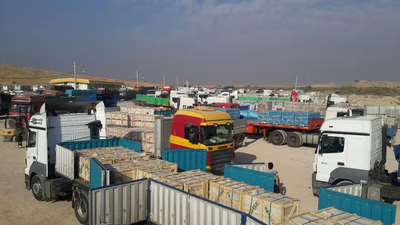
Iraq"s transportation infrastructure is primarily road-based, with trucks being the main mode for goods movement across its extensive network. While rail transport exists, it mainly serves passengers, with limited freight capabilities. International Transport Group specializes in facilitating cargo transport to Iraq, offering services from loading at the origin to delivery at the destination. The most efficient method involves direct loading in the country of origin and shipping via standard trucks. Additionally, goods can be transported through Iranian border customs terminals before entering Iraq. River transport remains relevant, especially for bulk and agricultural products in southern regions. Pipelines are crucial for oil and gas transport, significantly impacting Iraq"s economy. Sea transport through ports like Umm al-Qasr is vital for international trade, while airfreight from various international airports enhances the speed of shipping high-value items. Despite challenges such as sanctions and historical conflicts affecting industrial growth, opportunities exist for Iranian traders in sectors like health tourism and technical services.
-
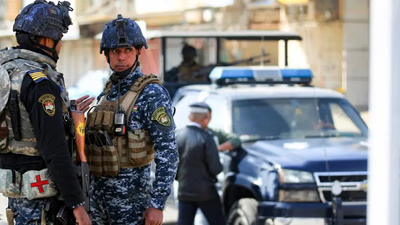
Iraq"s geography significantly influences its cultural and linguistic diversity. The Tigris and Euphrates rivers provide fertile land, shaping agriculture and settlement patterns. This region, historically a crossroads of civilizations, fosters cultural exchange. Iraq"s population of approximately 40 million speaks Arabic and Kurdish as official languages, with various ethnic groups preserving their unique dialects. The country is rich in history, often referred to as the "cradle of civilization," home to ancient civilizations like the Sumerians and Babylonians. Iraq"s diverse landscapes include lowlands, deserts, and mountainous areas, contributing to its rich cultural heritage. The literacy rate ranges from 60% to 70%, with a significant Muslim population practicing various religious traditions. Iraq"s historical ties with neighboring regions have influenced its culture and trade dynamics.
-
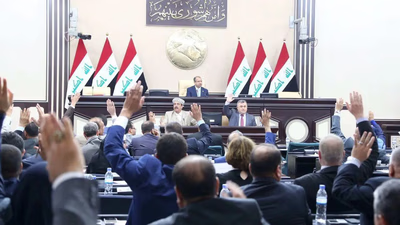
Iraq"s investment laws aim to attract both domestic and foreign investments, fostering economic growth and a conducive business environment. Key legislation includes Investment Law No. 13 of 2006 and its amendments, which offer incentives such as tax exemptions, customs duty waivers on machinery, and land allocation for projects. The laws encourage technology transfer, job creation, and the protection of investor rights while expanding Iraq"s export capabilities. Dispute resolution mechanisms are in place through local courts or international arbitration. Specific sectors like oil and gas have tailored regulations overseen by relevant ministries. Foreign investors benefit from various incentives including insurance provisions, stock exchange participation, long-term land leases, and tax exemptions for up to ten years. The National Investment Commission (NIC) plays a crucial role in promoting investment by providing necessary information and facilitating processes.
However, certain restrictions apply to investments in oil extraction, banking, insurance companies, and land acquisition for non-Iraqis. The Investment Law encompasses diverse sectors such as industry, agriculture, tourism, housing, infrastructure, and services while allowing various investment forms like joint ventures or acquisitions.
-

Exporting products to Iraq requires compliance with specific regulations, including labeling in Latin and Arabic. The Iraqi Standardization Institute mandates these labels for goods, particularly from Iran. Failure to meet these requirements can lead to customs rejection, causing significant losses for exporters. Trade routes between Iran and Iraq include both formal and informal customs points, with key locations such as Bashmaq and Parviz Khan Customs facilitating the majority of exports. Understanding the cultural and political landscape is crucial for successful trade, as Iraq"s diverse ethnicities and historical challenges impact business operations. Despite its potential as a lucrative market, exporters must navigate instability and ongoing political issues. The reconstruction efforts in Iraq present opportunities for foreign traders, particularly in sectors like construction and energy, where Turkey has established a strong presence. However, the complex socio-political environment necessitates careful planning and local knowledge to ensure successful market entry. "
-
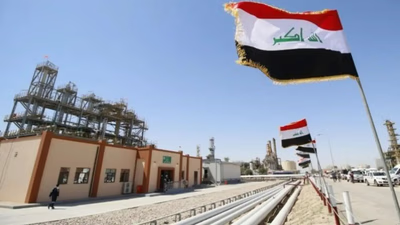
Iraq"s economy is heavily dependent on oil exports, which influences the demand for non-oil goods. Exporters must conduct thorough market research to assess product demand, competition, and potential sales volume in Iraq. Understanding consumer preferences and purchasing power is essential for determining profitability. Compliance with trade regulations, customs duties, and taxes is crucial for successful exporting. Currency exchange rates can affect pricing strategies, so establishing clear payment terms and mitigating risks like delayed payments is important. Political stability and security conditions also impact the business environment in Iraq. Adapting products to local preferences can enhance appeal and profitability. Since 2003, Iraq has been a significant trading partner, with Iran being a major exporter of non-oil goods such as food items, industrial parts, and health services.
For small to medium-sized companies, indirect exporting through intermediaries is often recommended. Competitive pricing based on local market analysis is vital for success in Iraq"s diverse market landscape.









